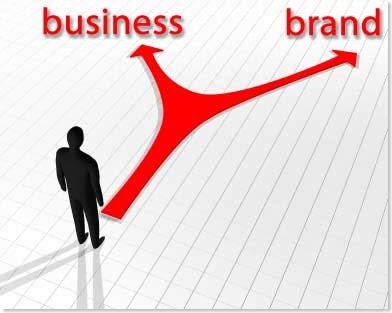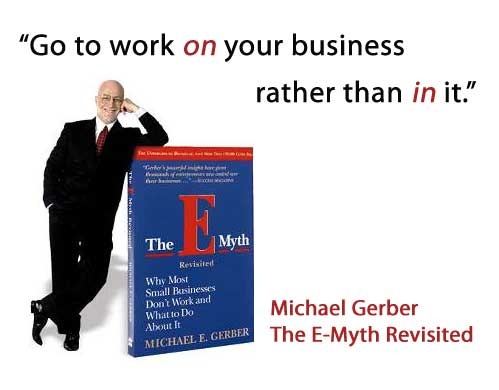Most small business owners don’t launch a brand, they start a business. That, unfortunately confines them to the realm of running a business rather than building a brand. It’s a matter of perspective, but it’s an important distinction. To see why, let’s compare the two.
Selling vs. Engaging
Small business owners are constantly fighting the cash flow battle. They’re running a business and looking for positive cash flow. That means selling stuff. It’s a constant search for new products, new services, and worse; a quest to beat the competition’s price to get the sale. Which, of course, leads to slim profit margins.
It’s not that brand-builders don’t worry about cash flow, but they know cash flow takes care of itself, if you take care of the brand. Brand-builders consider how they might engage the customer rather than sell her. That means getting her involved in the brand so that they work with her, rather than trying to sell her something. The brand and customer work together to find a solution, not a product to buy. They are engaged together in a partnership.
Advertising vs. Loyalty
“We need more business!” This declaration leads to the inevitable conclusion that a business must advertise because they don’t have enough customers. So the business owner goes on a search for the advertising formula that will magically attract new customers. It’s a meandering journey that leads a frustrated business owner to continually waste money over several years, all while trying to find the right advertising message and medium. This constant search for new customers diverts attention from a much more profitable solution.
The brand-builder understands that you don’t need to spend money advertising for new customers if your current customers frequently make repeat purchases. Brand builders save that advertising money and focus on customer loyalty. The additional benefit is that loyal customers often become brand evangelists and word-of-mouth machines. Spending less money on advertising also helps cash flow.
Service vs. Experience
If you ask a business owner what differentiates him from his competitor, nine out of ten times the response will be, “it’s our service.” Running a business means focusing on good customer service. The problem is that customers already expect good service and it does nothing to differentiate your business. And while good service may create a satisfied customer, it doesn’t create a loyal customer. So what does?
A remarkable customer experience is the number one factor of customer loyalty, and experiences sparks word-of-mouth conversation. Businesses deliver service, brands create experiences. Building a brand means building relationships, and relationships are built on shared experiences.
Expenses vs. Investments
It’s the cash flow argument again. Businesses need to control expenses to survive. I don’t argue that you shouldn’t watch your expenses and frivolously spend money. But I’ve seen businesses shrink themselves out of existence because they were controlling their expenses. It starts innocently with a slight reduction in inventory, then maybe holding off on a promotion. Soon, a business becomes tight-fisted and that’s a problem.
On the other hand, brands look for investment opportunities, generally with an eye toward the future. Brands know that money they spend today might not yield a return tomorrow, but a year from now… Sometimes the investment doesn’t work out. That doesn’t deter a brand-builder, who keeps searching for the next investment that enhances the customer experience, builds customer loyalty, and engages the customer.
In vs. On
In his best-selling classic, The E-Myth Revisited, small business guru Michael Gerber councils that entrepreneurs should work on their business, not in their business. Business owners work hard, rarely less than 40 hours a week. And that work is usually done in their business, making sure that day-to-day operations run smoothly. They also do it because it reduces expenses. If the owner does some of the work in the business, it’s one less salary that has to be paid. But who’s working on the future?
Today is the future of one year ago. If one year ago, you weren’t working on today, you’re behind the curve. Brand-builders are always working on the business, preparing for the future. They look at the business from the outside, like customers do. Brands are always moving forward and don’t get locked down by what’s happening today…in the business.
Brands are more powerful than businesses, and more sustainable. You have a choice: run a business, or build a brand. Which are you doing?
“Go to work on your business rather than in it.” – Michael Gerber
Don’t miss out on free marketing advice. For updates on new articles: Receive The Marketing Spot by Email or Get The Marketing Spot in a blog reader.



[…] Running a Business vs. Building a Brand It’s a very important distinction because brands are more powerful and sustainable. In this article learn how to move your company from business to brand. Begin the evolution here… […]
[…] Might Also Be Interested In: Free ebook: The Brand Building Checklist Running a Business vs. Building a Brand The First Step to Building an Awesome […]